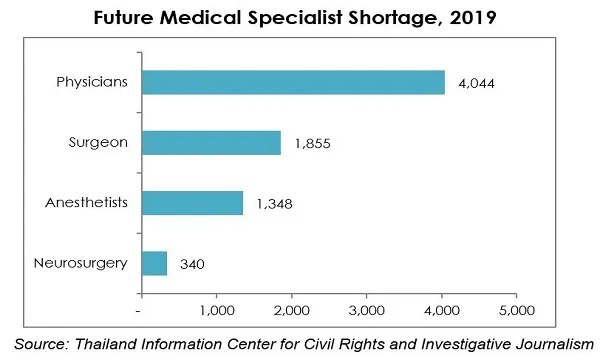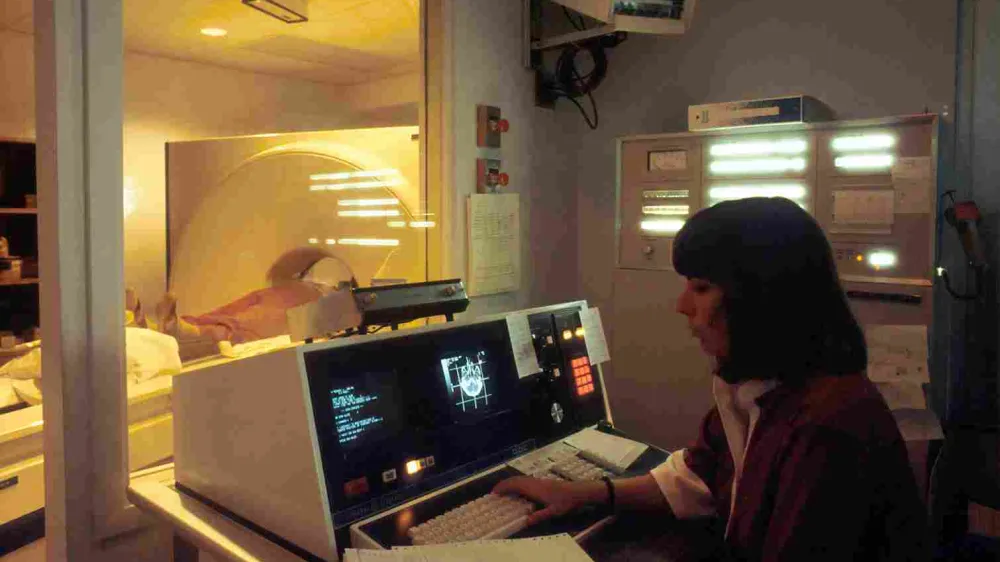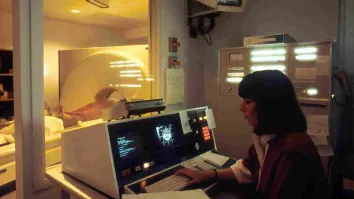
Chart of the Week: Thai hospitals bombarded by massive shortages of medical specialists
It can be felt in both capital and tier-two cities.
Hospitals and health facilities in the Southeast Asian country are feeling the pain caused by the shortages and imbalance in the number of medical specialists, both in capital and tier 2 cities.
In an interview with Healthcare Asia, Mickael Feige, a partner at Solidiance, said the shortage is directly affecting the demand for sophisticated medical devices as there are no sufficient personnel to operate them.
Additionally, taking into account population structure and medical school attendant numbers, the physician shortage will increase significantly due to the aging population, Feige adds.
“Several factors are aggravating the specialist shortage situations: Universal Healthcare scheme that is benefiting the whole population, expansion of private hospitals, rising numbers of chronic disease patients, and rising expectations to receive treatments from specialists,” Feige explained.
To make things worse, Mickael Feige said the shortage of specialists is also aggravated by the inefficiencies in the Thai healthcare system.
“At the moment, any patient in Thailand can, without any filtering by general practitioners or family physicians, access medical specialists. This leads to redundancy and unnecessary diagnostic and treatments,” Feige said.
Meanwhile, to increase the efficiency and effectiveness of the utilisation of medical specialists, Feige says 5,600 family physicians are needed.
“Family physician’s role is to provide primary and secondary care while lessening the burden or tertiary care providers by preventing unnecessary patients access to tertiary care,” Feige said.



















 Advertise
Advertise





